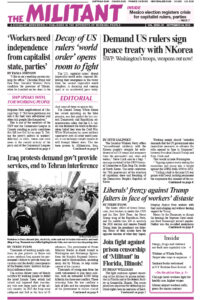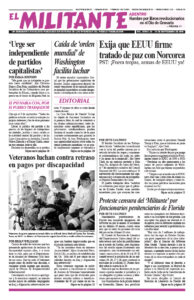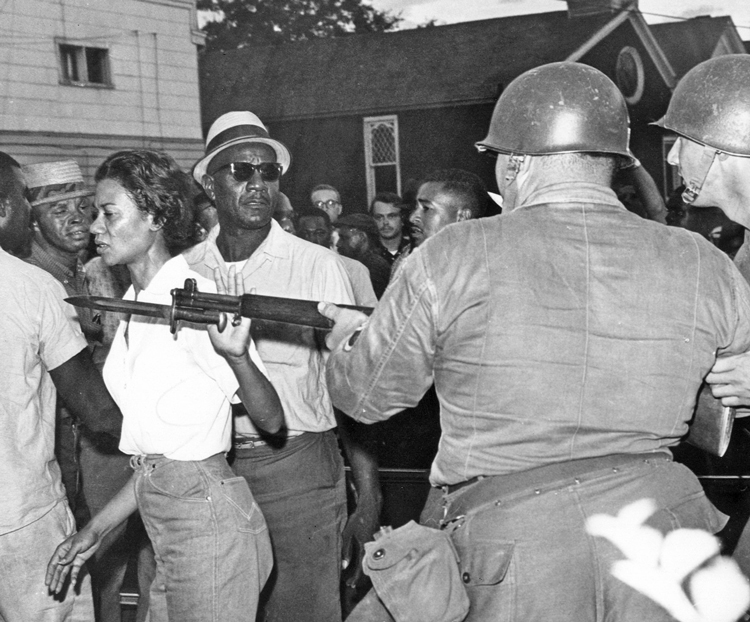CHICAGO — As of Sept. 7, some 2,074 people have been shot here this year, and 381 of those died. The impact, especially in largely African-American neighborhoods on the South and West sides, has been devastating.
And there have been surges, like the Aug. 4-5 weekend, when 74 people were shot, mostly over gang-related disputes and control of the drug trade. Twelve of them died.
The ongoing bloodshed has provoked a debate over its causes and how it should be confronted. This is a serious question on the mind of many workers.
Some Democratic Party politicians and liberal meritocrats claim that high crime levels and gang warfare are the result of poverty and racism. But does being poor or the victim of racism turn you into a criminal?
Some seek to blame workers in these communities for their own problems, saying there is a breakdown of “moral values” and the family. But that also begs the question.
The main “solutions” proposed are no better — ranging from bigger government and more welfare programs to more cops and gun control. But the “explanations” and “solutions” from all wings of the bourgeois political spectrum obscure what is at stake for the working class.
Democratic Party Mayor Rahm Emanuel recently flooded 600 more cops into the West and South sides. Police Superintendent Eddie Johnson said he ordered the cops to break up “large, unsanctioned street parties” to keep people from getting shot.
An Aug. 2 “redistribute the pain” march shut down Lake Shore Drive on the mostly Caucasian North Side before marching to Wrigley Field where the Chicago Cubs baseball team was playing. March organizers called for the resignation of Emanuel and Johnson, as if a better Democrat, or a Republican, would make a difference.
Drugs are a capitalist business
The drug trade — and the gangs and crimes associated with it — are an integral part of the capitalist system. They bring higher profits than Walmart or McDonald’s because all investments bring bigger returns if they entail higher risks. In at least one of Chicago’s gangs —the Black Gangster Disciple Nation — the guys at the top call themselves the “board of directors.” And the foot soldiers at the bottom, who run the greatest risk, don’t end up making much more than minimum wage.
Are more cops and more aggressive policing the answer? It’s true, a swarm of cops on the streets can lower crime, but at what price? Many Black workers feel conflicted over policies like “stop and frisk” and “broken windows” policing. They worry about drive-by shootings, about seeing their kids getting caught in the crossfire. But they know those policing policies bring more harassment, violations of constitutional rights, police shootings and frame-ups, and this hits Black youth the hardest.
Historically the creation of the cops was part of the growth of the capitalist system. The first police force was set up in New York in the 1840s to protect the factories and property of the capitalist ruling families. The slogan of the Chicago cops is “We Serve and Protect.” They serve the capitalist class and are in business to protect their wealth, all created by our labor. That includes the drug kings, who pay them off.
“The purpose of the cops is to punish, not patrol,” notes Socialist Workers Party National Secretary Jack Barnes in Capitalism’s World Disorder. “The purpose of the cops is to keep workers in line, to make an example of you if you come from the wrong class — and more so if you also happen to be the wrong color or the wrong nationality” in their eyes.
Workers in Chicago who have learned about the torture and frame-up machine run by cop Jon Burge and his notorious “midnight crew” on the South Side know all about this.
This will become even clearer as the class struggle heats up. We will face police attacks on our strike picket lines and attempts to break up our protests. And the cops will of course continue to look the other way at the crimes of the bosses, who in their disregard for safety and single-minded drive for profits maim or kill thousands of workers every year.
What is the road forward?
Members of the Socialist Workers Party discuss these questions with fellow workers as we knock on their doors in cities and rural areas across the country. When SWP member Leroy Watkins and I knocked on the door of Linda Harris Aug. 14, she invited us in to talk and look at the Militant and other literature we brought. Harris, a recently retired factory worker, was born and raised on the South Side.
“The gangs in our neighborhoods are behind most of the shootings. They fight among themselves for the money to be made off the drug trade,” she said. “They are modern day Al Capones. And some cops get kickbacks. It’s about young people’s mindset.”
Some young people and others are so alienated under capitalist society that they prey on fellow workers, a sign of the success of the capitalist ruling class in keeping us divided. Capitalist morality is every man for himself, dog-eat-dog; me, my family, my gang first.
But this will change when we have something to live and fight for, I said.
The crime rate in Cambridge, Maryland, dropped by 75 percent in 1962 and 1963 compared to the 1961 rate, at the same time as the mass Black rights movement rose there.
“All levels of the Negro community were affected by the movement,” the Jan. 15, 1965, Baltimore Sun reported. “Even Negroes who took no active part in the protests were deterred from crime by a spirit of unity and common concern for the movement.”
The militant struggle fought to bring down segregation, for construction of low-rent public housing and other demands to improve workers’ lives and their dignity. “The most important single fact is that [the Cambridge movement] was conducted almost entirely by lower class Negroes,” the Sun said.
A revolutionary, fighting social and labor movement — including fights for jobs, amnesty for immigrants, against police brutality — that opens the road to uniting working people in our millions to take political power from the capitalist class will have a powerful impact. It will draw in those who today carry out anti-social activity and involve them in forging solidarity with other workers in struggle. Workers don’t need to wake up to their oppression, Malcolm X said, but to their own worth. The struggle will transform them.
It’s the only way to begin to overcome the distortions of human potential and character that are rooted in capitalist society.


